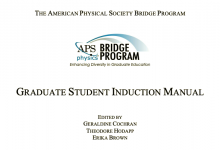Resource Library
Last updated: May 2, 2025
IGEN and our partners are developing and collecting resources to support individuals and institutions that are interested in graduate education.
Featured Resources
- Report
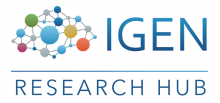
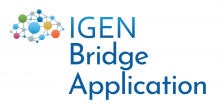
- Recording
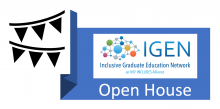
- Guide

- Guide

- Article

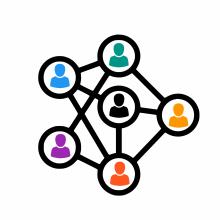
- Workshop

- Article
- Report

- Report

- Newsletter

- Report
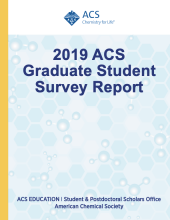
- Article

- Recording
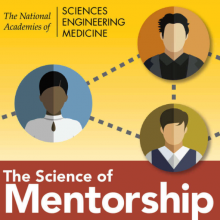
- Recording
Open House Recording
- Article
After GRExit: Reducing Bias in Geoscience Graduate Admissions
Details
Dropping the GRE is just a first step toward holistic admissions. To further reduce bias in applicant evaluations, the UMass-Amherst geosciences program has changed the way it assesses students.
Mentoring Compacts
Details
Align expectations with your mentor, mentee, or project team with these Mentor Compact examples.
Revist the subject through regular project meetings.
- Report
IGEN Year 3 Progress - WestEd Evaluation Report Movie
Details
The mission of IGEN is to broaden the participation of Black, Indigenous, and Latinx students in the physical sciences from the undergraduate level through professional employment. In 2020-2021, IGEN made significant progress toward its four goals summarized in this short movie.
- Report
IGEN Year 3 Progress - WestEd Evaluation Report
Details
The mission of IGEN is to broaden the participation of Black, Indigenous, and Latinx students in the physical sciences from the undergraduate level through professional employment. In 2020-2021, IGEN made significant progress toward its four goals.
- Newsletter
IGEN News Summer 2021
Details
Our IGEN Project Quarterly Newsletter highlights the work being done by our alliance members and partners.
Featured in this issue:
- Introducing Monica Plisch, Interim Director of IGEN
- National Meeting Highlights
- Meet Miranda Gallagher, IGEN's new Project Manager
- Opportunities to Learn: Equity in Graduate Education Workshops and Virtual Journal Clubs
- IGEN Partner News
- Article
Rethinking the Race
Details
Hurdles are by definition barriers. You clear them by leaping, or they will trip you up. Who has the freedom to change the types and placement of hurdles in doctoral programs, and on what basis?
Today, people in many disciplines are considering how time-honored hurdles that students must clear on the way to the Ph.D. may 1) threaten mental health, 2) disproportionately eliminate students from underrepresented groups, particularly students of color and 3) fail to substantively contribute to students’ development. As is often the case, the conventional wisdom about what makes a “good” Ph.D. program may be more convention than wisdom.
Qualifying exams are common to Ph.D. programs. They offer a perfect case study of a traditional hurdle that is up for reconsideration concerning its efficacy for student development and success. We have been studying those exams and the broader transition to candidacy in STEM. It’s part of our collective research agenda to analyze, deconstruct and reconstruct established academic practices -- e.g., admissions, teaching and hiring -- in order to advance racial equity in academe.
We conducted a survey to understand the range of exam structures in physics, chemistry and geosciences; then, we used the results to identify programs that recently changed their exams. We conducted in-depth case studies of two programs’ change processes and the outcomes. The case studies examined the cultural significance of the transition to candidacy and how many faculty members think about altering conventional exams in favor of more developmental, lower-stakes assessments.
Research participants shared stories about rethinking exams as part of broader Ph.D. program improvement efforts. Over and over, they told us that programs “got rid of” the GRE and a traditional qualifying exam because they viewed the costs to equity and well-being as outweighing benefits for selection and learning.
- Presentation Materials
Open House Presentation - 2022
- Article
How to Prepare for an Interview and Follow up Gracefully
Details
Opening Paragraph
"Interviewing can be nerve-wracking and uncomfortable. Everything about you—your education, your personality, your skill set—is on the table. Whether your interview is face-to-face or virtual, what you do to prepare ahead of it and how you follow up can make a big difference in the outcome. Here’s what you need to know to be ready for your big day."
- Article
Utilizing Equitable and Inclusive Design Principles to Promote STEM Identity of Community College Transfer Students
Details
The University of California, Santa Cruz (UCSC), Workshops for Engineering & Science Transfers (WEST) 2019 program designed workshops for
students interested in chemistry, climate science, physics, and toxicology that focused on promoting the scientific identities by incorporating authentic ways for students to receive recognition from both peers and instructional facilitators, as well as allowing students to tap into their own personal interests and values.
This paper, Utilizing Equitable and Inclusive Design Principles to Promote STEM Identity of Community College Transfer Students, provides insights from the designed assessments. Mentoring was one example strategy - below is an excerpt from the paper:
"Mentoring is one strategy for cultivating STEM identity, as mentors link students to career resources and research opportunities, provide emotional support, foster mentees' confidence and science self-efficacy, and facilitate their valuing of scientific research (e.g., Atkins et al., 2020; Estrada et
al., 2018). In leading a relatively short activity, the main mentoring goal was to cultivate learners' STEM Identities through facilitation. During the PDP, we (as facilitators) were trained in design aspects and facilitation moves that, when implemented, helped foster learners' STEM Identity, including recognition by meaningful others to facilitate meaningful events in our activities to bolster learner confidence in STEM (discussed in 1.2). Additionally, since several of our activity facilitators identified with marginalized groups including first generation college students, people of color, and the LGBTQ+ community, they could help serve as role models to learners from similar backgrounds."
- Presentation Materials
Virtual Journal Club - Article Summary - Support Structures
Details
Departmental support structures for physics graduate students: Development and
psychometric evaluation of a self-report instrument
By Diana Sachmpazidi and Charles Henderson
Date & Time of Journal Club: Monday, June 27th 2022 at 12pmPT/3pmET
Article PDF
─
Summary
The American Physical Society’s Bridge Program (APS-BP) has significantly higher persistence rates than
physics graduate education across the country (90% vs 60%). Motivated by this early positive outcome,
the researchers aimed to explore and offer empirical evidence as to what aspects of the Bridge Program
contribute to these higher persistence rates. This paper describes the development and psychometric
evaluation of a survey instrument, the “Aspects of Student Experience Scale (ASES)”, that was designed to
evaluate physics graduate students’ experiences related to different forms of departmental support that
may have made the APS-BP successful, namely: (a) mentoring and research experience, (b) professional
development, (c) social and academic integration, and (d) financial support. This paper supports the
ongoing development and validation of this survey tool.397 physics graduate students across 19
programs participated in the study. The initial findings reported here reveal that graduate students
experience adequate mentoring and financial support, but have limited social and academic integration
or professional development. Practitioners may be able to use ASES to identify, based on students’
perspectives, which practices they may need to address to better support the student experience. - Presentation Materials
Virtual Journal Club - Article Summary
Details
The intersectional privilege of white able-bodied heterosexual men in STEM.
By Erin A. Cech
Date & Time of Journal Club: Tuesday, October 18th, 2022 at 10amPT/1pmET
Article PDF
─
Summary
One way that discussions and work toward equity may vary from diversity or inclusion is in attention to
power and privilege. When we don’t pay attention to these issues, people are more likely to experience a
hostile or chilly climate day to day, career trajectories and opportunities are negatively impacted, and
inequalities are reproduced. But what really is privilege and how does it work? This paper can help STEM
community members become more attuned to how privilege operates and how they can interrupt it in
support of more equitable learning and work environments. Using survey data from 25,324 STEM
professionals in the STEM Inclusion Study, “this study examines whether, in the aggregate, [white,
able-bodied, heterosexual men] WAHM experience intersectional privileges compared with members - Article
Grappling with barriers in geosciences from the lens of two Latina geoscientists
Details
Abstract: "This article reviews our shared experience as two minoritized graduate students, encapsulating what the barriers we encountered were, and identifies the impacts of a personal disinterest by geoscientists and institutional disinvestment in diversity, equity, and inclusion (DEI) issues in the geosciences. Specifically, in this article we advance the concept of disinvestment in the academy, and how disinvestment and disinterest reveal themselves in the ways the geosciences as a field interact with service and outreach to impact the abilities of minoritized geoscientists to create and sustain diversity, equity, and inclusion efforts. Through evaluating the case of our creation of a geosciences camp for problems with disinvestment and disinterest by the academy, we identify barriers we faced and solutions created to address them through the framework of navigating a road, and typologizing them as roadblocks, detours, and alternate routes. The multiple barriers we experienced cumulatively amount to considerable time and effort lost, resulting in harm against us and our careers. We find the disinterest and disinvestment we experienced disincentivizes service and outreach work that is pivotal in improving DEI in geosciences. Our current systems and expectations need modification so we can move away from disinvestment and create engaged support structures."
- Article
Gender and Racial Bias in Radiology Residency Letters of Recommendation
Details
Abstract
Objective: Perceptions of agency and communality vary by race and gender, which may be contributing to the persistent gender and racial inequality in radiology. The objective of this study was to determine if there are differences in the use of agentic and communal language in letters of recommendation for radiology residency programs based on the demographics of the applicant and letter writer.
Methods: We retrospectively reviewed letters of recommendation for 736 diagnostic radiology residency applicants to Duke University from the 2015 to 2016 interview season. We then used computerized text analysis software to calculate the frequency of agentic and communal terms and multilevel negative binominal regression to compare differences in count by applicant and letter writer demographics.
Results: We analyzed 2,624 letters of recommendation, comprising 976,489 words. The majority of applicants were male (75%, 549 of 736) and white or Asian (77%, 565 of 736). Letter writers, who were mostly male (75%, 1,979 of 2,624) and of senior rank (50%, 1,313 of 2,624), described female applicants as more agentic than men (incidence rate ratio [IRR] = 1.08, P < .05) and described blacks and Latinx applicants as less agentic than whites and Asians (IRR = 0.932, P < .05). Secondary analysis showed that female letters writers described applicants as more agentic (IRR = 1.09, P < .05) and more communal (IRR = 1.12, P < .01) than did male writers, and senior rank faculty used agentic (IRR = 0.95, P < .05) and communal (IRR = 0.88, P < .01) language less often than did junior faculty.
Conclusion: The extent to which agentic and communal language is used in letters of recommendation for diagnostic radiology residency programs differs by applicant and letter writer demographics.
Keywords: Bias; gender; letters of recommendation; race.
- Article
Race and Gender Bias in Internal Medicine Program Director Letters of Recommendation
Details
Abstract
Background: While program director (PD) letters of recommendation (LOR) are subject to bias, especially against those underrepresented in medicine, these letters are one of the most important factors in fellowship selection. Bias manifests in LOR in a number of ways, including biased use of agentic and communal terms, doubt raising language, and description of career trajectory. To reduce bias, specialty organizations have recommended standardized PD LOR.
Objective: This study examined PD LOR for applicants to a cardiology fellowship program to determine the mechanism of how bias is expressed and whether the 2017 Alliance for Academic Internal Medicine (AAIM) guidelines reduce bias.
Methods: Fifty-six LOR from applicants selected to interview at a cardiology fellowship during the 2019 and 2020 application cycles were selected using convenience sampling. LOR for underrepresented (Black, Latinx, women) and non-underrepresented applicants were analyzed using directed qualitative content analysis. Two coders used an iteratively refined codebook to code the transcripts. Data were analyzed using outputs from these codes, analytical memos were maintained, and themes summarized.
Results: With AAIM guidelines, there appeared to be reduced use of communal language for underrepresented applicants, which may represent less bias. However, in both LOR adherent and not adherent to the guidelines, underrepresented applicants were still more likely to be described using communal language, doubt raising language, and career trajectory bias.
Conclusions: PDs used language in a biased way to describe underrepresented applicants in LOR. The AAIM guidelines reduced but did not eliminate this bias. We provide recommendations to PDs and the AAIM on how to continue to work to reduce this bias.
Five reasons graduate programs reject stellar applicants
- Journal Article
First-year graduate courses foster inclusion
Details
To the Editor – Recent studies have highlighted the lack of racial and ethnic diversity in geoscience1 and the failure to increase diversity of students earning geoscience PhDs in the United States for more than 40 years2. In response to this crisis, programmes are working to expand diversity through graduate recruitment efforts3. However, our discipline will not become more diverse without making our graduate programmes more inclusive and sustainable for those who enter them. As part of our inclusive practices, we, as US professors and mentors of graduate students, have built courses for first-year graduate students that seek to make transparent the tacit knowledge needed to succeed in our discipline4, sometimes called the hidden curriculum of graduate school.
- Guide
Considerations for Reference Letter Writers
Details
The American Physical Society Bridge Program has compiled these tips for drafting an effective letter of recommendation for a student seeking
admission into a graduate program. - Newsletter
How To Land Your First Job: An Email Guide
Details
Are you trying to navigate the job search and feeling lost? C&EN’s 7-step guide on How to Land Your First Job might just be the roadmap you’re looking for! Subscribe for tried-and-true advice from your peers in academia, industry, and other careers. Then, twice a week, we’ll email you advice from these experts on how to find the career path that’s right for you, grow your network, find out where the jobs are, put together an impressive CV or resume, craft a winning cover letter, ace the interview, and negotiate the job offer. In your inbox every Tuesday and Thursday.
By completing and submitting this form, you are subscribing to C&EN’s How to Land Your First Job. You understand and agree that use of American Chemical Society (ACS) websites are subject to the ACS Terms of Use and ACS Privacy Policy, including the fact that ACS can contact you based on the information provided. In order to process your registration completely, you understand that your information will be transferred to ACS’ affiliates globally.
- Article
100 inspiring Hispanic/Latinx scientists in America
Details
Supreme Court Justice Sonia Sotomayor once said, "Until we get equality in education, we won't have an
equal society." Though aimed at society as a whole, her words also apply to our scientific society.Until the scientific community makes dedicated efforts to include minority scholars, science will never be an equal society. While the Supreme Court recently ruled to block attempts to end the Deferred Action for Childhood Arrivals (DACA) program, the fight against systemic racism is a long journey that extends far beyond this case. We must all work to ensure scientists from all walks of life are supported and welcomed into the scientific community in order to build a landscape that more accurately represents the makeup of society.
In honor of National Hispanic Heritage Month, we're showcasing 100 of the most inspiring Hispanic/Latinx scientists working in the United States. This list—selected based on scholarly achievements, mentoring excellence, and commitment to diversity, equity, and inclusion—represents only a subset of the scientific role models in the community. Our aim in assembling these names is to put an end to the harmful myth that there are not enough diverse scientists to give seminars, serve as panelists, or fill scientific positions. We highlight scientists encompassing careers within academia, government, and biotech and showcase individuals committed to serving diverse student populations at Hispanic-serving institutions. Although we understand this list is not fully representative of the Hispanic/Latinx scientific community, we hope it will help to change the perception of what a scientist looks like and makes our collective image more representative of society at large.
***To read the entire article, please click on the link above.***
NOTE: "100" List includes Christine Ortiz, PhD, Professor of Materials Science and Engineering, Massachusetts Institute of Technology and IGEN National Advisory Board Co-Chair.
- Report
AGU’s Ethics Annual Report 2020
Details
Introduction
In 2020, we witnessed unprecedented societal challenges and calls to action impacting the entire Earth and Space Sciences (ESS) community. The global COVID-19 pandemic, which disproportionately impacted racial and ethnic minorities, coincided with an additional clarion call to address systemic racism, initiating a global movement to reexamine past and current diversity, equity and inclusion (DEI) practices across all major institutions. From a DEI point of view, 2020 can be summed up as a year of coping, reckoning and addressing significant new challenges. However, 2020 was also a year of DEI opportunity, advancement and innovation at AGU. Much of that opportunity, innovation and advancement is based on AGU’s new strategic plan, adopted in April 2020, with a key goal to build, cultivate and support an inclusive science community that builds on past DEI strategic plan initiatives.
- Journal Article
Sell yourself and your science in a compelling personal statement
Details
Don’t get bogged down in technical details, and balance the professional and the personal.
Personal statements — essays highlighting personal circumstances, qualities and achievements — are used extensively in science to evaluate candidates for jobs, awards and promotions. Five researchers offer tips for making yours stand out in a crowded and competitive market.
Applicants should also tailor their personal statements to their audience. For instance, students applying to graduate schools and scholarships will often send generic personal statements with their applications. If applicants want an academic institution to invest in them, then their personal statements need to reflect a genuine interest in the organization they’re applying to. The candidates with better statements usually include details of labs they are interested in working in and specifics about research topics they find fascinating.
- Recording
Supporting mental health and well-being of STEMM graduate students
Details
Highlights from the National Academies’ report
April 7, 2021 | Duration: 1 hr. 2 mins.
Student well-being is foundational to academic success. One recent survey of postsecondary educators found that nearly 80% believed emotional well-being is a "very" or "extremely" important factor in student success. While dealing with stress is a normal part of life, for some students, stress can adversely affect their physical, emotional and psychological health, particularly given that adolescence and early adulthood are when most mental illnesses first manifest.
Join us for a conversation on supporting the mental health and well-being of STEMM (science, technology, engineering, mathematics and medicine) graduate students. Building on the recently released report "Mental Health, Substance Use, and Wellbeing in Higher Education: Supporting the Whole Student" from the National Academies of Sciences, Engineering and Medicine, study authors Frances Leslie and Julie Posselt and study director Layne Scherer explore the key takeaways from this report related to graduate education.
This webinar is part of a series of events co-organized by scientific societies committed to enhancing the professional development of early-career scientists. This event is hosted by the American Society for Biochemistry and Molecular Biology, with media partners American Chemical Society, American Geophysical Union, American Physical Society, American Society for Cell Biology, and Professional Development Hub.
- Article
Events Code of Conduct
Details
IGEN Events Code of Conduct
The Inclusive Graduate Education Network (IGEN) exists to create a more equitable future for the physical sciences, and an inclusive climate is a foundation of that future. As we gather for meetings, we are committed to holding ourselves and each other accountable to standards of respectful behavior that enable full engagement, productive connections, and learning. Therefore, it is IGEN’s policy that all participants, including attendees, vendors, IGEN project members, volunteers, and all other stakeholders at IGEN events will conduct themselves in a professional manner that is welcoming to all participants and free from any form of discrimination, harassment, or retaliation.
- Article
Guidelines for Social Media and Photography
Details
About the Guidelines
The IGEN Meetings Code of Conduct provides overall guidance for all meeting attendees and participants who participate in any sanctioned event. However, IGEN has specific guidelines for the use of social media and photography at all IGEN or IGEN Alliance planned meetings. We ask all meeting participants to follow the guidelines outlined below.
- Article
ACS Bridge Fellow Danica Gressel on the Importance of Community and Representation in Grad School
Details
"Like many students who apply to grad school, Danica Gressel wondered if she had what it takes to be successful. With help from some great mentors, faculty, and the ACS Bridge Program, she was able to put her doubts to rest and grow in confidence, professionalism, and skill."
Excerpt taken from inChemistry article [November 12, 2020]
- Article
ACS Bridge Program makes an impact
Details
Mentorship is key to the program’s success in diversifying the chemical sciences
Launched in 2018, the ACS Bridge Program is part of the ACS Bridge Project and aims to increase the number of Black, Latino, and Indigenous students earning doctoral degrees in the chemical sciences. The program is part of the NSF INCLUDES Alliance: Inclusive Graduate Education Network (IGEN) and is supported by a grant from the US National Science Foundation, with additional funding from the Genentech Foundation. The ACS Bridge Program is modeled after the successful American Physical Society Bridge Program, which matches students accepted into the program with partner institutions that provide individualized mentoring and support.
- Website
Connection First
Details
Our Mission
We are a 501(c)(3) nonprofit. Our mission is to create spaces where people are seen, heard, and valued. To do this, the organization will use Nonviolent Communication and restorative practices to counter the effects of epidemic trauma in all systems: government, education, business, industry, and homes.
- Website
URGE: Unlearning Racism in Geoscience
Details
URGE's primary objectives are to:
- Deepen the community’s knowledge of the effects of racism on the participation and retention of Black, Brown, and Indigenous people in Geoscience
- Draw on existing literature, expert opinions, and personal experiences to develop anti-racist policies and strategies, and
- Share, discuss, and modify anti-racist policies and strategies within a dynamic community network and on a national stage.
Read URGE's summary here.
- Book
The Privileged Poor
Details
Getting in is only half the battle. The Privileged Poor reveals how—and why—disadvantaged students struggle at elite colleges, and explains what schools can do differently if these students are to thrive.
The Ivy League looks different than it used to. College presidents and deans of admission have opened their doors—and their coffers—to support a more diverse student body. But is it enough just to admit these students? In The Privileged Poor, Anthony Jack reveals that the struggles of less privileged students continue long after they’ve arrived on campus. Admission, they quickly learn, is not the same as acceptance. This bracing and necessary book documents how university policies and cultures can exacerbate preexisting inequalities and reveals why these policies hit some students harder than others.
Despite their lofty aspirations, top colleges hedge their bets by recruiting their new diversity largely from the same old sources, admitting scores of lower-income black, Latino, and white undergraduates from elite private high schools like Exeter and Andover. These students approach campus life very differently from students who attended local, and typically troubled, public high schools and are often left to flounder on their own. Drawing on interviews with dozens of undergraduates at one of America’s most famous colleges and on his own experiences as one of the privileged poor, Jack describes the lives poor students bring with them and shows how powerfully background affects their chances of success.
If we truly want our top colleges to be engines of opportunity, university policies and campus cultures will have to change. Jack provides concrete advice to help schools reduce these hidden disadvantages—advice we cannot afford to ignore.
- Website
AGU Ethics and Equity Center
Details
Advancing diversity, equity and inclusion in science
AGU’s leadership in establishing the Ethics and Equity Center will help promote greater diversity, equity, inclusion and integrity in scientific work and research environments. Delve into our newly redesigned site for tools to act and institute more inclusive practices in your workplace or organization.
- Website
AGU Pathfinder: Learn and Develop
Details
Finding and Following Your Path
No matter your career stage, professional and career development are important to advancing yourself and helping guide others. AGU Pathfinder provides career and educational resources, webinars, mentoring services, and support for students and professionals at all levels in Earth and space science.
At AGU, we’re especially committed to inspiring and educating present and future generations of diverse, innovative, and creative Earth and space scientists. We know that the impact of our science grows when individuals and groups who aspire to contribute to science are welcomed and supported and when we have a strong pipeline. By helping all people at any stage of their careers, and through a commitment to creating ethical, inclusive and diverse work environments, we can strengthen the global Earth and space science community and broaden its positive impact on society.
- Website
Graduate & Postdoctoral Chemist
Details
A FREE online magazine for Graduate Students & Postdocs, the GP Chemist focuses on career advice, wellness, career paths, lab life, awards, fellowships, and general topics related to grad student and postdoc life.
- Website
Georgia Tech Student Opens Up About Pursuing an Advanced Degree as a Vietnamese American
Details
"There is such a lack of diversity in STEM graduate school when it comes to ethnicities, especially when it comes to the Vietnamese community. Having more people within the Vietnamese community represented in STEM allows graduate school in STEM to be more accepted and normalized to Vietnamese who are considering a career in STEM. Read more to learn how Thomas Pho overcame this challenge as he pursues his PhD in the chemical sciences at the Georgia Institute of Technology."
Excerpt taken from inChemistry article [September 22, 2020]
- Website
Grad Student Isel Rivera Turns a Difficult Beginning into a Steady Stream of Growth
Details
"With help from the ACS Bridge Program, a preparatory program designed to support and mentor students from underrepresented minorities in their pursuit of graduate education, Isel Rivera, now a second-year doctoral student at Indiana University studying the interaction of nanoparticles, shares how she landed on a path to success."
Excerpt taken from inChemistry article [February 24, 2021]
- Newsletter
IGEN News Winter 2021
Details
Our IGEN Project Quarterly Newsletter highlights the work being done by our alliance members and partners.
Featured in this issue:
- 2021 IGEN National Meeting Save The Date! & program planning.
- Launch of IGEN's new website
- Opportunities to Learn: Equity in Graduate Education Virtual Journal Clubs
- Bridge Program News
- Presentation Materials
Bridging Physics Talent: Discovering lost capability, building an inclusive landscape
Details
The complete presentation is available in PDF for download.
- Website
The Graduate Adviser - Monthly Advice Column
Details
This resource links to The Graduate Adviser archive by Leonard Cassuto at The Chronicle of Higher Education.
- Presentation Materials
Progress Overview: Disciplinary Societies
Details
This slide, taken from IGEN's Reverse Site Visit 2020 presentation, highlights individual disciplinary society's progress made in year 2 towards project goals.
[RSV Presentation Part 2, slide 6]
- Article
US Geoscience programmes drop controversial admissions test
Details
Geoscience graduate programmes across the United States are increasingly dropping a controversial standardized test from their admissions requirements.
The graduate record examinations (GRE), which was introduced in 1949, aims to measure verbal and quantitative reasoning, analytical writing and critical thinking. In recent years, academic researchers and others have criticized the test, claiming that it unfairly weeds out capable students and restricts the flow of women and people from minority ethnic groups into the sciences.
Geosciences departments began to eliminate it as an admissions requirement last year. The trend, dubbed GeoGRExit, has gained impetus as programmes seek to maintain numbers of graduate applications in the face of the coronavirus pandemic. But the geosciences have trailed behind other scientific disciplines. So far, more than 300 biology and biomedical graduate programmes have dropped the test, according to a list maintained by Joshua Hall, director of graduate admissions for the biological and biomedical sciences programme at the University of North Carolina at Chapel Hill.
Some 62 US geosciences programmes no longer require applicants to submit GRE results, according to a database maintained by Sarah Ledford, an urban hydrologist at Georgia State University in Atlanta. Around half of those have dropped the requirement since 4 June, when the American Geophysical Union’s weekly news magazine, Eos, published an opinion piece calling for the test to be abandoned. It argued that eliminating the GRE could help to boost diversity in one of science’s most exclusive disciplines.
- Presentation Materials
Diversity in Graduate Mathematical Sciences
Details
Theodore Hodapp, Director of the NSF INCLUDES: IGEN Project presents the hard facts which show the disparities of equity in graduate programs across STEM disciplines. Hodapp hares how IGEN and its disciplinary society parters and bridge program institutions are tackling this issue and making a difference in increasing equity in graduate STEM education through a bridge program model offered at partner institutions.
- Report
Race and Ethnicity in Higher Education: 2020 Supplement
Details
This report examines over 150 indicators, looking at academic experiences and outcomes, and how these educational journeys differ, by race and ethnicity.
- Guide
Better Letters: Equitable Practices
Details
When graduate admissions committees meet to review applicant files, letters of recommendation are one component of the holistic review process that provides information about the applicant’s previous work, personality, and potential for success as a doctoral student. In order to ensure that letters of recommendation are effective tools for enhancing equity, we must critically assess how we write, read, and solicit letters of recommendation. This is especially important because numerous studies have demonstrated the presence of implicit biases in letters of recommendation (Dutt et al, 2016; Madera et al., 2019; Trix & Psenka, 2003). The presence of these biases in letters of recommendation can influence how prospective students are evaluated by admission committees and therefore may produce and reproduce racial and gender inequality in doctoral education.
- Workshop
Getting Ready For Advanced Degrees (GRAD) Lab
Details
The National GEM Consortium’s, GRAD Lab offers underrepresented students exposure to the benefits of research and technology careers in a highly interactive one-day event.
Speakers may range from current graduate students to senior managers to faculty and senior administrators. They are selected from diverse communities and disciplines to present on the following topics:
- “Why Graduate School”
- “How to Prepare for Graduate School”
- “Understanding the GEM Fellowship”, and
- “Voices From the Field: Real Life Research and Internship Experiences”
GRAD Lab encourages young people of color to consider graduate engineering or science education and applying for the GEM fellowship. Focusing on the global importance of research and innovation, life-long career benefits, and real world role models the symposium will help each student envision his or her future as a technology leader, successfully apply for a GEM fellowship, and gain entry to a graduate program. GRAD Lab is GEM’s portable and scalable solution for developing diverse technical talent with advanced degrees.
- Website
Pathways To Science Resource Toolbox
Details
The Pathways to Science Resource Toolbox has many resources to support students as they prepare for and apply to graduate school. Students will find great suggestions for preparing their applications and faculty & staff will resources to help them be better support their students.
- Website
Planning for Graduate Work
Details
Successfully preparing for, finding, and transitioning into a graduate program requires an investment of time and effort. Central to this process is the on-going consideration of your goals, strengths, and opportunities. The contacts in your network will also provide information, advice, and support. Remember that great resources for learning about graduate school are undergraduate advisers, graduate faculty, and graduate school events held as part of undergraduate programming at ACS meetings.
- Guide
Graduate School Reality Check
Details
If you’re considering graduate school, there is a lot you can do to ensure your success... and it’s never too early to start. Most important is completing a rigorous undergraduate curriculum, such as one that meets the requirements of an ACS-certified degree. Since chemistry research is becoming increasingly interdisciplinary, taking electives in other scientific areas of interest can be good preparation for interdisciplinary graduate work.
- Guide
APS Bridge Program Induction Manual
Details
The APS Bridge Program Student Induction Manual documents effective practices for inducting new students into graduate programs, as identified and described by APS Bridge Sites. It also includes specific strategies for developing a solid foundation for students before and well after their arrival on campus.

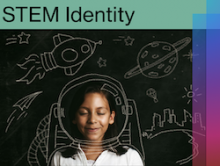 Published in Self Published: UC Santa Cruz: Institute for Scientist & Engineer Educators., 2022-09
Published in Self Published: UC Santa Cruz: Institute for Scientist & Engineer Educators., 2022-09
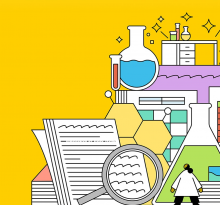 Published in c&en, 2021-07
Published in c&en, 2021-07
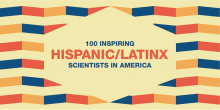 Published in CellPress, 2020-09
Published in CellPress, 2020-09
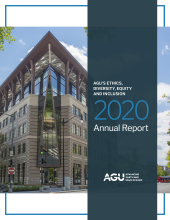 Published in AGU Annual Ethics Report 2020, 2021-04
Published in AGU Annual Ethics Report 2020, 2021-04
 Published in Nature, 2021-04
Published in Nature, 2021-04
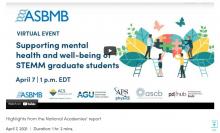 Published in American Society for Biochemistry and Molecular Biology, 2021-04
Published in American Society for Biochemistry and Molecular Biology, 2021-04

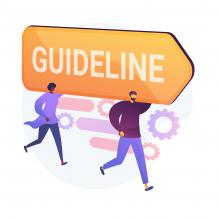
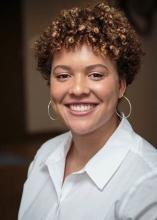 Published in inChemistry, 2020-11
Published in inChemistry, 2020-11
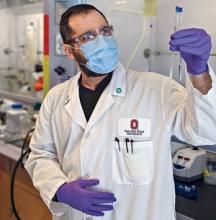 Published in c&en, 2021-03
Published in c&en, 2021-03
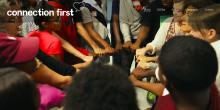

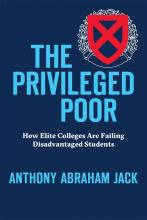 Published in Harvard University Press, 2019-03
Published in Harvard University Press, 2019-03


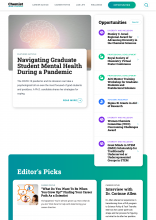 Published in GP Chemist,
Published in GP Chemist,
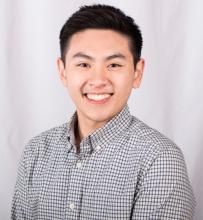 Published in inChemistry, 2020-09
Published in inChemistry, 2020-09
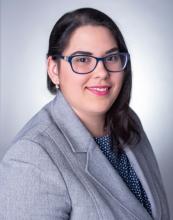 Published in inChemistry, 2021-02
Published in inChemistry, 2021-02
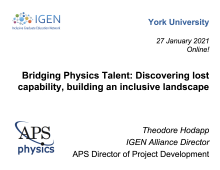 Published in York University Online Presentation, 2021-01
Published in York University Online Presentation, 2021-01
 Published in The Chronicle of Higher Education,
Published in The Chronicle of Higher Education,
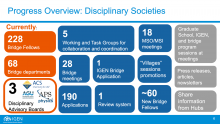
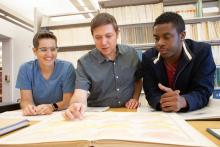 Published in Nature, 2020-07
Published in Nature, 2020-07
 Presented at
Presented at 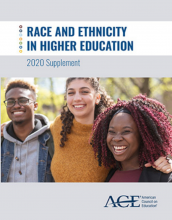
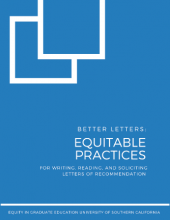 Published in Equity in Graduate Education - University of Southern California, 2020-11
Published in Equity in Graduate Education - University of Southern California, 2020-11
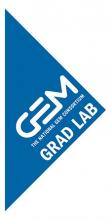

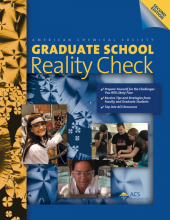 Published in Graduate School Reality Check Second Edition,
Published in Graduate School Reality Check Second Edition,
